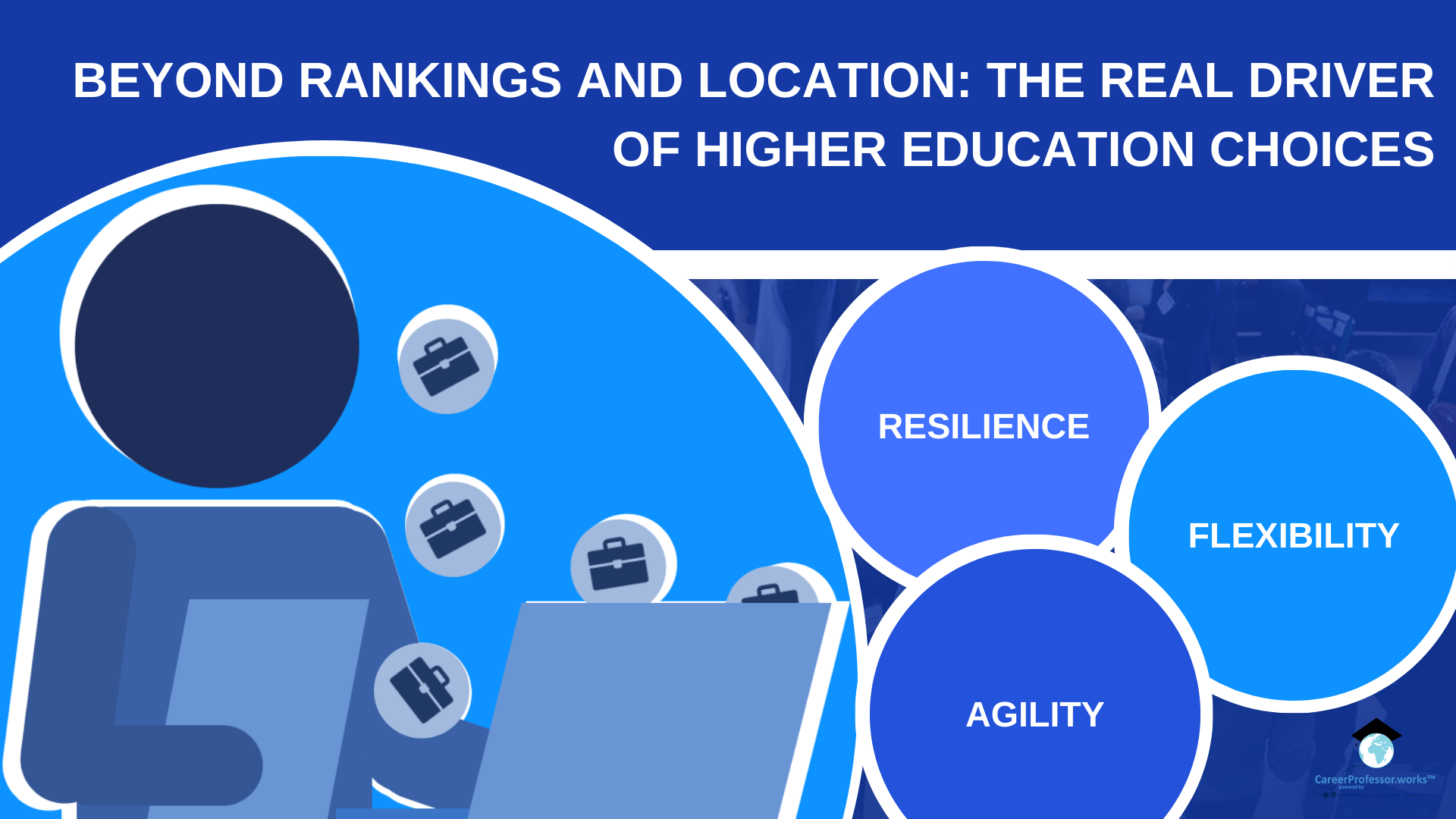
Beyond Rankings and Location: The Real Driver of Higher Education Choices
In today’s world, most students have excessive access to information, driving them to make more informed decisions on their choice of higher education than ever before. While some people might think the choice depends on learning quality or the location of the university, it is much simpler than that. Students put their focus on one thing: Employability.
As we can see in the i-graduate Global Student Experience Survey, employability has consistently emerged as the dominant factor influencing choices for the past five years. It seems, universities are at least to some extent aware of this attraction, looking at their websites filled with statistics, testimonials, and company logos of where their graduates work. Nevertheless, student experience (N= 190.030) tells us almost 30% feel unprepared or very unprepared for their career goals.
The vital role that universities play in enhancing employability is frequently overlooked, to the extent that it remains unmentioned even in the 2023 ESDE Report (Employment and Social Developments in Europe) published by the European Commission.
According to the World Economic Forum Report (2023), the current trend in the job industry is clearly going towards upskilling the existing workforce, as many employers are rather pessimistic about talent availability in the coming 5 years. However, there is currently an open door for students in the job market, as 68% of companies say they target talents who are under 25 years old, while an average of two out of three respondents recognises the importance of prioritizing young workers. Employer data seems to indicate a skills mismatch, with employers saying they are looking for certain skills, yet lack proof of those skills in recent graduates. Is it the students not able to ‘sell’ their skills? Or the employers not able to see the potential capability? Particularly internationally mobile students may be able to fill the gap if supported adequately by their higher education institution, as skills such as resilience, flexibility and agility are all trained extensively in students who go abroad – qualities employers across all industries try to find in their new hires.
It’s clear that employability is a two-way street. Students want to know that their investment in education will lead to a successful career, and employers seek graduates with the skills to thrive in an ever-evolving globally oriented job market.
A tool which can be used to bridge this missing link between education and the world of work is ‘CareerProfessor’ powered by Expertise in Labour Mobility. This platform is uniquely tailored to each university, catering to inbound, outbound and IaH [1] students, recent graduates, and alumni alike. Its purpose is to elevate employability while strengthening the bond between the university and its graduates.
By applying ‘Gamification’ CareerProfessor is not only made attractive 24/7 to students, but it also offers a network and supports the ranking of a university based on the labour market readiness of its graduates.
In conclusion, employability isn’t just a buzzword; it’s a driving force behind students’ study choice decisions. Universities that recognize this and explicitly teach their students about the valuable skills they have acquired, supported by tailored career guidance, stand to benefit immensely in attracting the right students whilst winning the confidence of employers.
Melanie Siegfried for Expertise in Labour Mobility
[1] Internationalisation at Home
